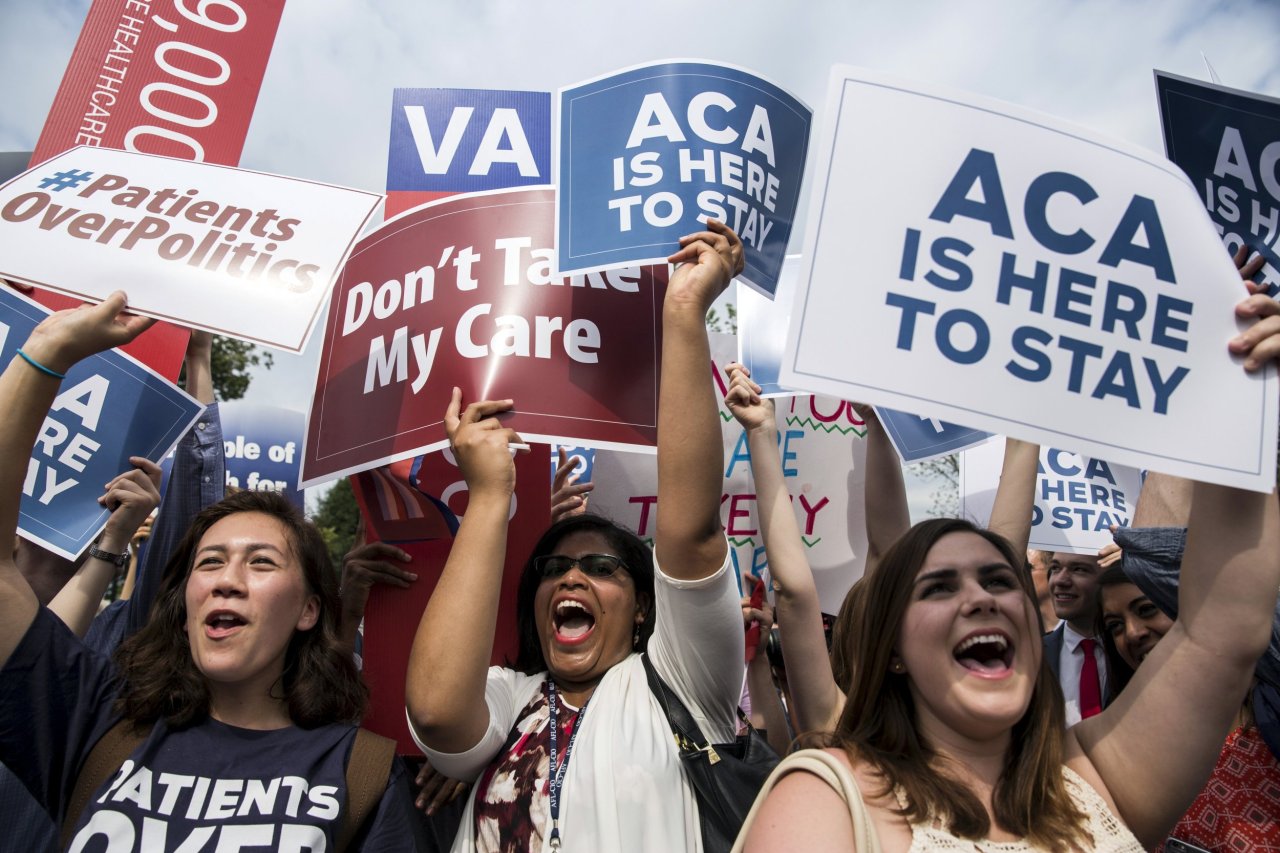Each year, the National Campaign to Prevent Teen and Unplanned Pregnancy runs a social media campaign to make people more comfortable talking about birth control. The hashtag: #ThxBirthControl.
But this year, #ThxBirthControl may have much more significance for many women. Health advocates say women should be prepared to possibly lose free access to birth control, along with other health care services, after Donald Trump settles into office in January.
Throughout his campaign, Trump vowed to repeal and replace President Barack Obama's health care law. Under Obamacare, health insurance companies are mandated to provide free contraception to all women who request it. It's unclear whether Trump will change this, though he has said he plans to uphold other provisions of the law, such as making it illegal for an insurance company to deny coverage for people with pre-existing conditions.
The good news, however, is that some analysts say that even if Trump does eliminate free access to birth control, it could take months, if not years, to enforce. "It is not going to be a snap-your-fingers change," Alina Salganicoff, vice president for women's health policy at the Kaiser Family Foundation, told The New York Times. And even if the birth control mandate disappeared, she added, most insurance plans would continue to cover many contraceptive options. Before Obamacare, 28 states required health insurance companies to cover birth control, according to a 2015 report by the Kaiser Family Foundation, and 85 percent of employer-provided plans offered this benefit.
The president-elect has promised to defund Planned Parenthood, which would significantly limit access to contraception. And there is speculation that women's access to contraception will narrow if the Supreme Court overturns Roe v. Wade, since Trump has said he plans to nominate an anti-abortion candidate for the court's vacant position. On November 13, during an interview on 60 Minutes, Trump told Lesley Stahl that if the law is overturned, it would mean abortion regulation power would go back to the states. This wouldn't make abortion completely illegal, he said. Instead, a woman living in a place where she's unable to get the procedure could simply "go to another state."
Already, women seem worried. Planned Parenthood clinics and other women's health care providers report a surge in patients requesting intrauterine devices. Boston NPR affiliate WBUR reported on Tuesday that local Planned Parenthoods in the state experienced a sixteenfold increase in the number of online requests for appointments to get IUDs. The device, after inserted by a medical practitioner, prevents pregnancy for as long as five to 10 years. So IUDs would outlast the president-elect's tenure in office.
IUDs are not cheap, but the fix-it-and-forget-it method of birth control has become far more popular in the past few years, thanks, in part, to the Obamacare provision. A woman not covered by insurance can pay $1,000 or more for the device, which also needs to be removed by a health care provider.
IUDs, along with implants, are a type of long-acting and reversible contraceptive. LARCs have an approximately 1 percent failure rate, which makes them the most effective contraception available yet still allows a woman to maintain her future fertility. Some conservatives say that abstinence is by far much more reliable, especially Vice President-elect Mike Pence, who once called advocating condom use "too modern and liberal." (Never mind that the first condoms were sold in the 1600s.) Many women are especially worried about Pence's efforts to limit women's access to basic health care services. In the week following the election, Planned Parenthood received 20,000 donations in Pence's name. They definitely weren't from the president-elect.
While Pence and scores of other conservatives question the morality of safe sex and claim that contraceptives are a waste of tax dollars, most of the public that identifies as Republican is actually in favor of birth control access. According to a survey conducted by the National Campaign to Prevent Teen and Unplanned Pregnancy, more than three-quarters think birth control is a basic part of women's health care, and close to as many say they believe those who oppose abortion should strongly support birth control access.
Lawmakers often forget (or ignore) the fact that sometimes doctors prescribe birth control for reasons that do not involve preventing pregnancy. Hormonal birth control such as the pill, the patch and IUDs is offered to women who have erratic menstrual cycles, experience painful periods or suffer from ovarian cysts. The pill is also sometimes prescribed to treat acne and alleviate symptoms of premenstrual syndrome. For some women, losing access to hormonal contraceptives is like telling Trump to go without his statins.
























